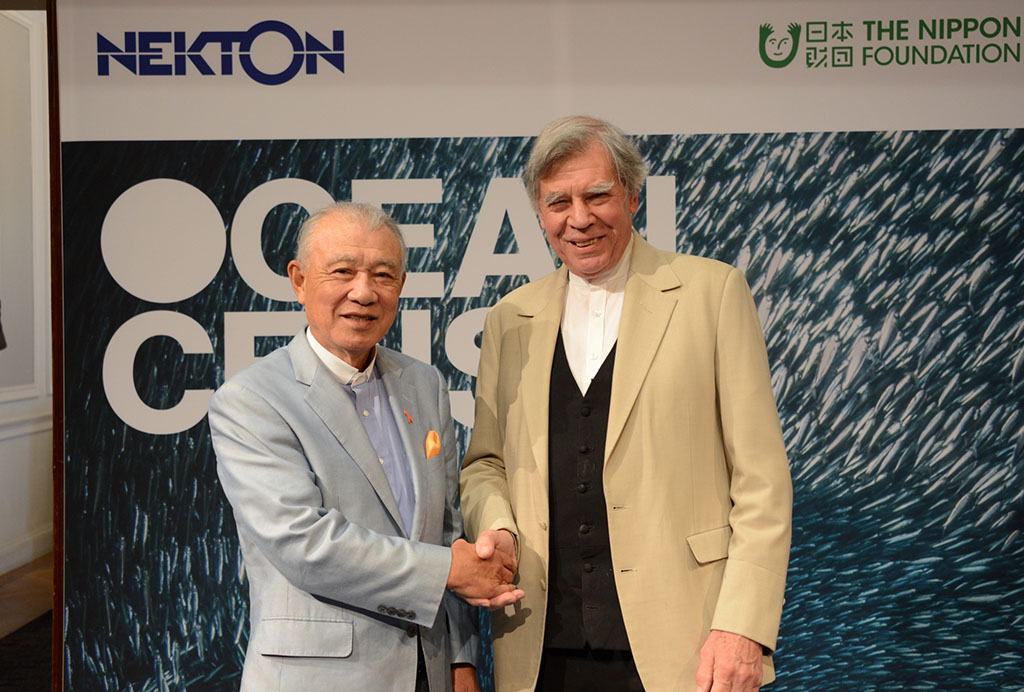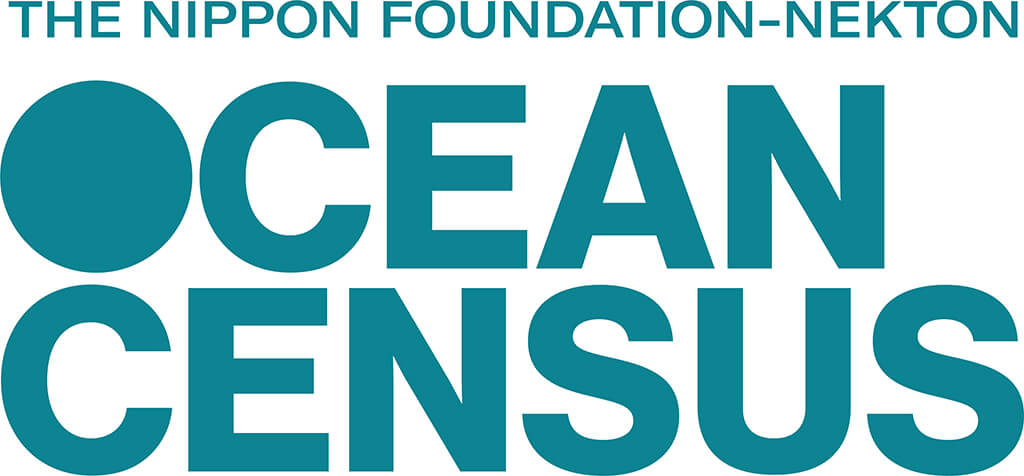Launch of The Nippon Foundation-Nekton Ocean CensusInternational project to explore unknown marine life to preserve biodiversity, understand evolution, and promote medical and pharmaceutical science
On April 27 (London time), The Nippon Foundation and Nekton Foundation of Britain announced the launch of The Nippon Foundation-Nekton Ocean Census, an international project to explore unknown marine life.
The average number of marine species discovered each year has been relatively unchanged since the 19th century, and the roughly 240,000 species currently recorded are thought to represent no more than 10% of the total. The process from discovery to registration takes at least one to two years, and there is a risk that biological species that hold the key to understanding the evolutionary history of life that emerged from the primordial ocean will become extinct without having been discovered.
In response, The Nippon Foundation, which for many years has been working to resolve various ocean issues, has launched The Nippon Foundation-Nekton Ocean Census through a grant to Nekton Foundation, which is promoting ocean exploration to understand the ocean and protect ocean life. The project will work to discover unknown marine life by exploring hot spots of the ocean that are rich in biodiversity, from the ocean surface to its depths. The project also aims to expedite significantly the process from discovery to registration, with a goal of discovering at least 100,000 new species during the first 10 years. After that, it will centrally manage information related to new species and make it freely available to anyone, to make contributions to the development of new fields including medical and pharmaceutical biotechnology, through climate change forecasting and genetic information analysis, in addition to preserving and understanding the evolution of marine biodiversity. The planned budget for the first phase of the project, to run from fiscal 2023 to fiscal 2025, is roughly US$4 million for the first year.
Through this project, The Nippon Foundation seeks to convey the enjoyment and allure of discovering unknown marine life to the general public, including children, in addition to specialists, to create a foundation from which to pass on the bounty of the ocean to the next generation.

Overview of The Nippon Foundation-Nekton Ocean Census
Ocean Census is a project jointly established by The Nippon Foundation and Nekton Foundation. To discover unknown marine life, the project will explore hot spots with abundant biodiversity in the world’s oceans, from the surface to the ocean’s depths. Live samples obtained by the project will be analyzed at Ocean Census Biodiversity Centre at Oxford University Museum of Natural History, where the project is being headquartered, and at other biodiversity centers being planned around the world. In addition, the plan is for the information gained from the analysis to be centrally managed on an open-source basis, so that it can be accessed freely by anyone, including the general public, in addition to scientists and policymakers.
Already, 22 research institutes, universities, and companies, including REV Ocean and the Schmidt Ocean Institute, a major foundation involved in ocean issues, are cooperating in the project, and going forward, this cooperation will expand to sectors including science, the media, business, and the general public.

Project’s 3 pillars
1. Exploration across ocean regions
Depending on the depth, the project will use combinations of divers, manned submersibles, remotely operated vessels (ROVs), and autonomous underwater vehicles (AUVs) to explore hot spots of the ocean around the world with abundant biodiversity, from the ocean’s surface to its depths. In addition to Ocean Census’s own exploration, joint exploration will be carried out with various sectors using a range of methods, including joint research through the dispatching of researchers from projects already being planned by research institutes, government agencies, and private sector companies. The project will also provide portable analytic kits to other organizations engaged in research, to facilitate the efficient collection of information by having them send samples they collect to an Ocean Census center. The project aims to discover 4,650 new species during the first year, and at least 100,000 new species during the first 10 years.
2. Analysis at biodiversity center
In addition to Ocean Census Biodiversity Centre at Oxford University Museum of Natural History, where the project is being headquartered, the project plans to set up biodiversity centers around the world, so that samples collected can be converted to high-resolution images and for DNA sequencing. In addition to using cutting-edge technologies like DNA sequencing and machine learning, a network of cloud-based taxonomists will be created to speed up and scale up the process from new species discovery to registration. This process is currently said to take at least one to two years, and the project aims to reduce this to several months.
3. Public awareness through dissemination of information about marine life
The information analyzed by the biodiversity centers will be digitalized using a standard format, and centrally managed in an open-source Ocean Census Biodiversity System, so that it can be freely accessed by anyone, including scientists, policymakers, and the general public. In addition, images recorded while carrying out the exploration will be used to create original content to be disseminated to the media and through social media, to make the general public as well as specialists aware of the ocean’s possibilities in terms of discovering new life and the importance of understanding biodiversity and ocean environments.
Expected results
With developments including the agreement on marine biodiversity of areas beyond national jurisdiction reached by the United Nations in March 2023, the protection of biodiversity is becoming a focus of global attention. In addition to leading to a better understanding of the evolution of life, the information on unknown marine life obtained through this project is expected to make a significant contribution to policies for the creation of biological sanctuaries in the ocean.
In addition, discovering new species of marine life is expected to bring about major scientific advances, including climate change forecasts using updated ocean information and medical and biotechnological development through the understanding of genetic information. For example, marine genetic resources are used as source ingredients in pharmaceuticals and nutritional supplements, and 13 pharmaceuticals derived from marine organisms have already been clinically approved for diseases including cancer, neuropathic pain, COVID-19, HIV-AIDS, and as antiviral drugs, an additional 24 are in clinical trials, and 250 are undergoing non-clinical testing. The use of marine genetic resources is seen fueling the marine biotechnology industry in ways including the discovery of new drugs to treat disease and the designation of sustainable bioplastics.
Speakers’ comments
Yohei Sasakawa, Chairman, The Nippon Foundation
Considering that the ocean is the most fundamental element for the prosperity of humanity, I hope that this project to understand the ocean’s mysteries will be a trigger for the further development of humankind. This great project, full of dreams and romance, cannot be successfully carried out by The Nippon Foundation and Nekton Foundation alone. We look forward to working together with ocean research institutes and many of you here today to unlock the mysteries of the ocean.
Rupert Grey, Chair, Nekton Foundation
The discoveries which Ocean Census will make will enable those in government to regulate strictly the manner in which the Ocean is protected and its resources managed to best advantage. Enable, but not ensure. That is for nation-states and their governments and international agencies. I pray they are up to the task.
About Nekton Foundation
Nekton is a registered UK charity that was established in 2015, to pursue ocean exploration to accelerate our understanding of the ocean and preservation of ocean environments.

Contact
Public Relations Team
The Nippon Foundation
- Email: cc@ps.nippon-foundation.or.jp



